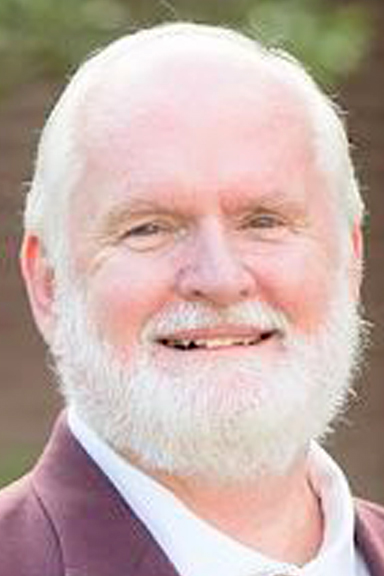Explore the Bible: January 16
Values • Ezekiel 16:20-21; 23:36-39; Psalm 139:13-16
By Wayne VanHorn

The title of our study, Values, is specifically focused on one value: the value of human life. Six times during the creation process, God pronounced His creation as “good.” However, once He created humans, He said, “very good” (Gen. 1:31 CSB).
People are the crowning work of God’s creative genius. He made us as we are and values us above all creatures. As we value human life, we reflect God’s love for people.
The ancient Israelites were the direct recipients of the Holy Scripture cited above. Yet, they mingled with pagan people, became idolatrous, and engaged in worship practices that involved child sacrifice. Human life was of no value; God was not honored by such worship.
Wrongdoing is justified (Ezek. 16:20-21). Ezekiel 16 conveys the sad truth that Israel had sunken to spiritual lows in committing child sacrifice. They mingled with pagan worshipers at least since the time of King Solomon when foreign wives turned his heart from following the Lord (1 Kings 11:4).
The rhetorical question, “Wasn’t your prostitution enough?” (Ezek. 16:20b), reveals that worship of pagan idols was considered religious harlotry. Merely worshiping pagan idols is a blatant violation of God’s commandments (Exod. 20:3-5).
The Law prohibited child sacrifice (Lev. 18:21). One pagan God, Molech, was openly worshiped by the Ammonites, who lived just east of the Jordan River. However, 2 Kings 23:10 and Jeremiah 32:35 confirm that Molech was also worshiped in Jerusalem.
Israelite children were sacrificed to Molech in the valley of Ben-Hinnom that borders the southern and western side of Jerusalem. Small wonder Jesus used this valley as an image of Hell itself (Matt. 5:22, 29-30).
The cold-hearted cruelty of Molech worship, with its attendant child sacrifice immolation, is shown in Ezekiel 16:21. The children were “slaughtered,” translating the same Hebrew verb shachat used in Exodus 12:6 to refer to killing the Passover lamb. Their children were being passed “through the fire to the images” (Ezek.16:21).
All the while, God referred to these innocent ones as “my children.” Of a truth, all children belong to God. Parents are entrusted to care for and nurture these children, raising them “in the training and instruction of the Lord” (Eph. 6:4).
Callousness becomes the norm (Ezek. 23:36-39). Using the allegory of two sisters named Oholah and Oholibah representing the northern kingdom of Israel and the southern kingdom of Judah, God commanded Ezekiel to pass judgment against them. He was to declare to them their “detestable practices,” to῾avoth in Hebrew. To῾avoth is the strongest term of denunciation in Hebrew for actions deemed utterly reprehensible to God.
In Ezekiel 23:37-39, the Lord piles up a list of grievous infractions against His holy character. The people had “committed adultery,” used here metaphorically to refer to spiritual unfaithfulness against the Lord. Pagan gods had become “their idols,” their spiritual mistresses.
Attendant to the religious adultery was the horrific practice of child sacrifice — “sacrificed in the fire as food for the idols.” The people also profaned God’s sanctuary by doing unholy things in His holy precincts.
They violated the Lord’s Sabbaths, breaking His commandment (Exod. 20:8). These verses describe syncretic religion whereby people mingled Yahweh worship with worship of false gods. This phenomenon characterizes many secularized worship services of today.
God’s truth revealed (Ps. 139:13-16). In contrast to the vile, syncretic blending of the holy with the profane described in Ezekiel 23:16-19, the psalmist focused on the role of the Holy God in our creation. Addressing the Lord directly, King David used the pronouns “you” and “your” seven times in reference to the Creator (Ps. 139:13-16). The psalmist-king confessed to God, “For it was You who created my inward parts; You knit me together in my mother’s womb.”
God’s direct involvement in human creation serves as ample reason to value all human life, both within the womb and after birth. Thus, Christians should be against abortion, the premeditated termination of the unborn. What about children after they are born? Believers should promote the support of children in the homes, schools, and society.
David stated in several ways how God was involved in the very detailed creation of his body as it was “remarkably and wondrously made” (Ps. 139:14). For him, this was cause to praise Creator God. He acknowledged that not even his bones were hidden from God. Indeed, God knew all his days, having written them down and planned them, “before a single one of them began” (139:16).
God values every individual person; so should we!
VanHorn is dean of the School of Christian Studies & the Arts at Mississippi College, Clinton.